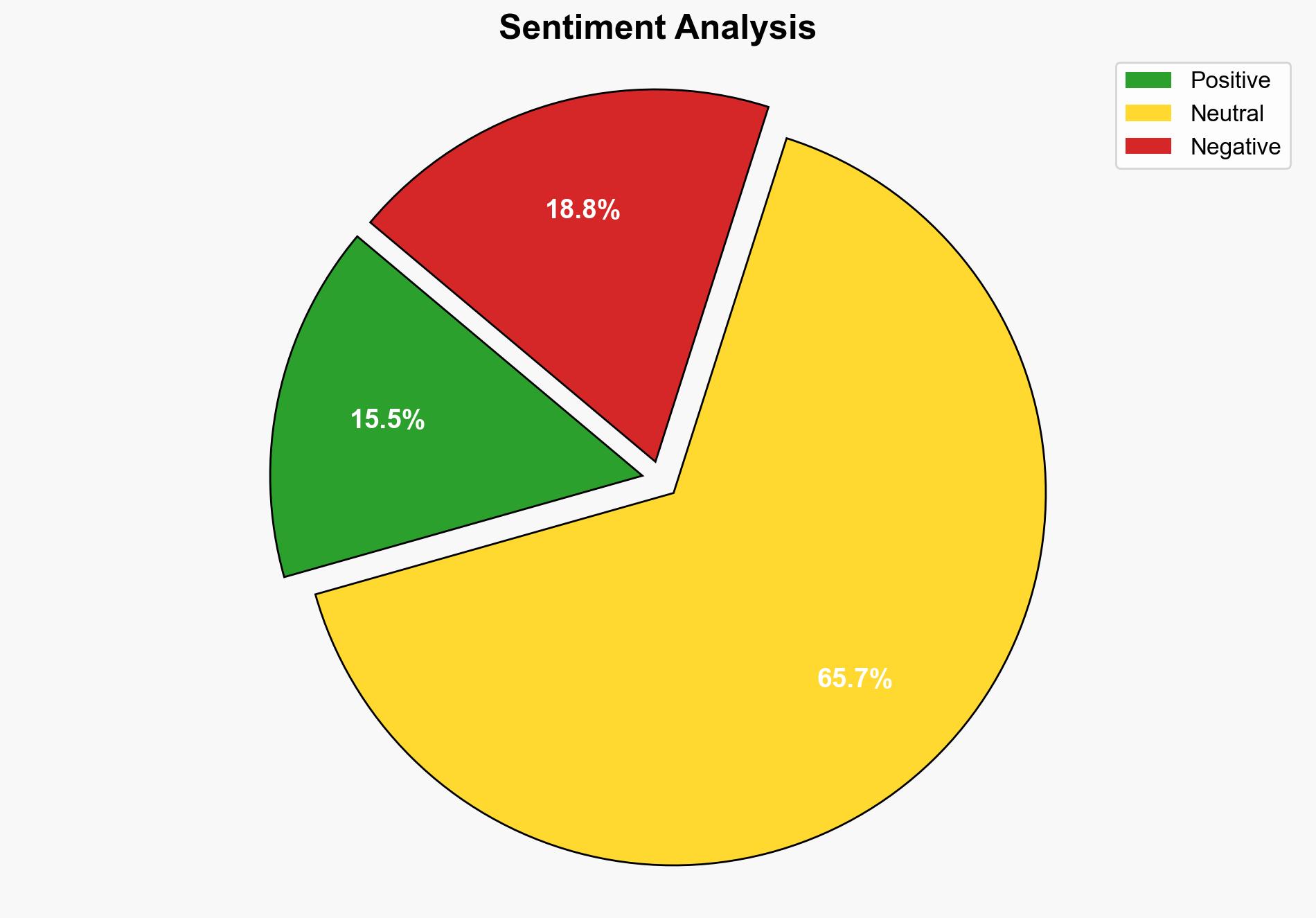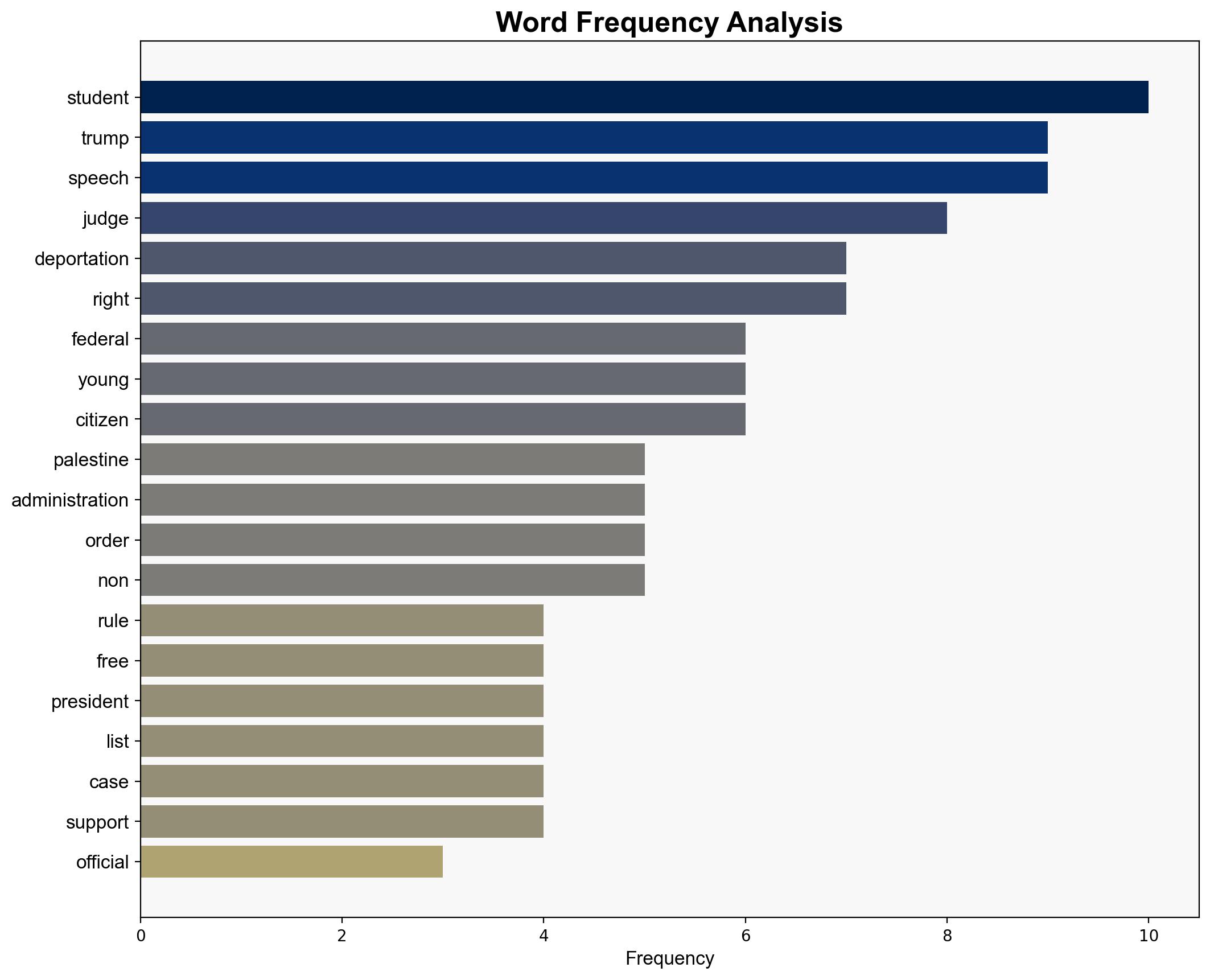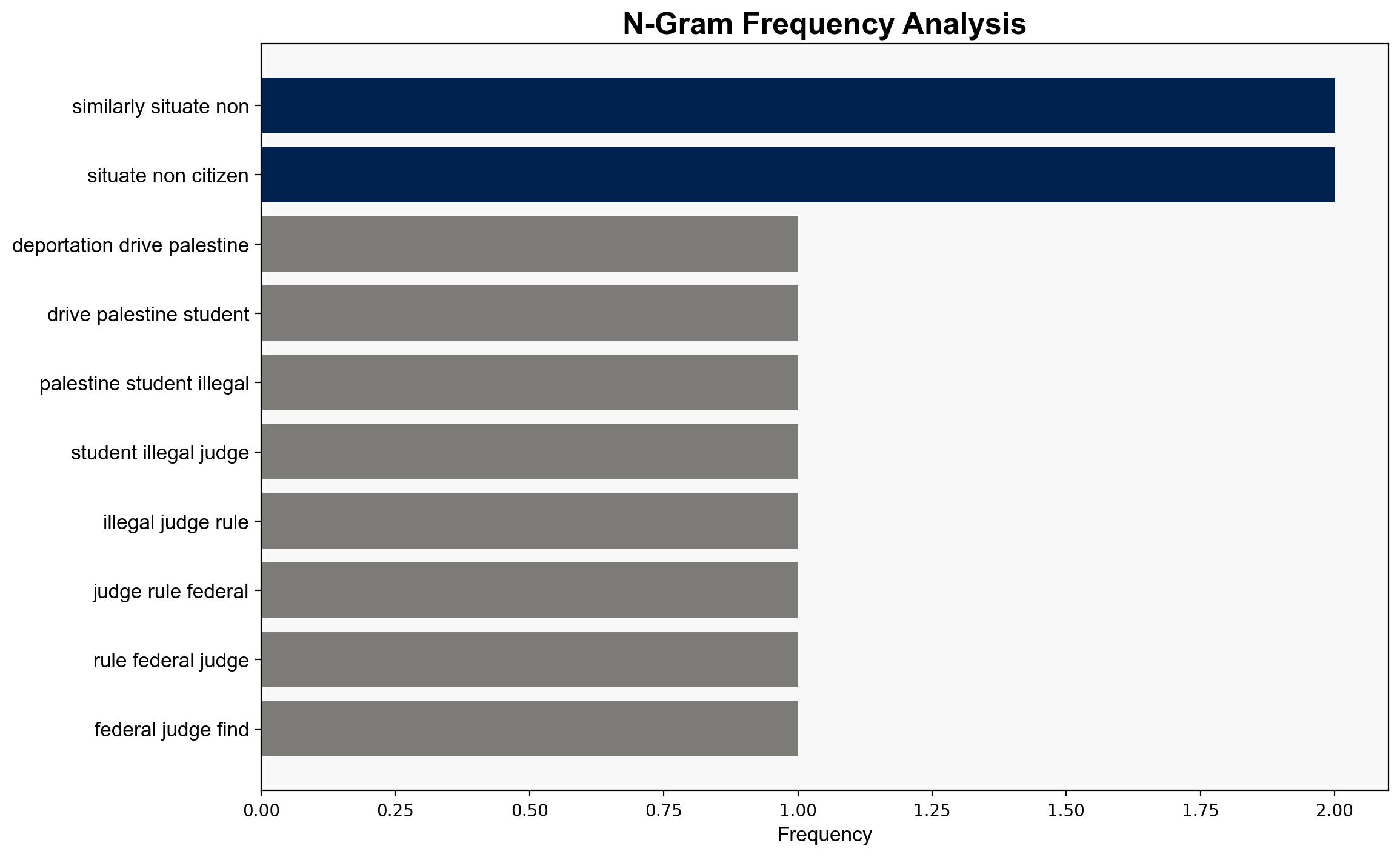US deportation drive against pro-Palestine students is illegal judge rules – Al Jazeera English
Published on: 2025-09-30
Intelligence Report: US deportation drive against pro-Palestine students is illegal judge rules – Al Jazeera English
1. BLUF (Bottom Line Up Front)
The federal court ruling against the deportation drive targeting pro-Palestine students highlights potential misuse of executive power to suppress free speech. The most supported hypothesis is that the deportation efforts were politically motivated to silence dissent. Confidence level: Moderate. Recommended action: Monitor legal developments and potential policy shifts, and engage in diplomatic dialogue to address international concerns.
2. Competing Hypotheses
1. **Hypothesis A**: The deportation drive was a deliberate effort by the Trump administration to suppress pro-Palestine activism and criticism of Israel, leveraging immigration laws to silence dissent.
2. **Hypothesis B**: The deportation actions were primarily driven by national security concerns, with the administration genuinely believing that certain foreign students posed a threat due to alleged links to terrorism or anti-Semitic activities.
Using the Analysis of Competing Hypotheses (ACH) 2.0, Hypothesis A is better supported by the judge’s ruling, which explicitly mentions the misuse of power to chill free speech. Hypothesis B lacks substantial evidence, as the court found no credible link between the students and terrorism.
3. Key Assumptions and Red Flags
– **Assumptions**: Hypothesis A assumes intentional political targeting, while Hypothesis B assumes genuine security concerns.
– **Red Flags**: Lack of transparent evidence linking students to terrorism raises questions about the validity of security claims.
– **Blind Spots**: Potential bias in judicial interpretation and the broader political context influencing the ruling.
4. Implications and Strategic Risks
– **Geopolitical Risks**: The ruling may strain US-Israel relations and impact US foreign policy in the Middle East.
– **Domestic Risks**: Potential backlash from advocacy groups and increased polarization on campuses.
– **Legal Risks**: Future legal challenges to immigration policies and executive actions may arise.
5. Recommendations and Outlook
- **Mitigation**: Engage with civil rights organizations to address concerns and improve transparency in immigration enforcement.
- **Opportunities**: Strengthen diplomatic relations by reaffirming commitment to free speech and human rights.
- **Scenario Projections**:
– **Best Case**: Legal reforms enhance protection of free speech without compromising national security.
– **Worst Case**: Escalation of tensions leads to increased activism and potential unrest.
– **Most Likely**: Continued legal scrutiny and gradual policy adjustments.
6. Key Individuals and Entities
– William Young
– Marco Rubio
– Kristi Noem
– Mahmoud Khalil
– Rumeysa Ozturk
7. Thematic Tags
national security threats, free speech, immigration policy, US-Middle East relations





